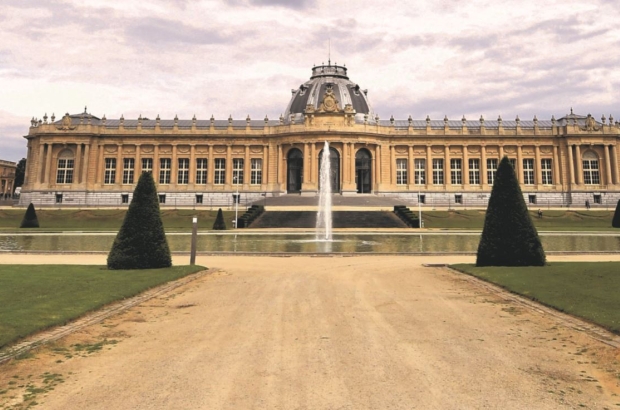- Daily & Weekly newsletters
- Buy & download The Bulletin
- Comment on our articles
Africa Museum protestors call for return of looted art
A group of activists from the Debt 4 Climate movement, together with other collectives, organised a surprise protest action at the Royal Museum for Central Africa in Tervuren on Saturday.
The activists aimed to draw attention to the museum's collection of stolen artefacts related to Belgium's colonial past in Congo, and demand their return.
The activists stuck hundreds of signs on objects, reading: “This artefact is a source of financial, symbolic and cultural gain. This profit comes from the theft and monetisation of cultural heritage from Congo. Acknowledge your guilt. Return the stolen objects.”
François Kamate, an environmental and human rights activist from Kivu, addressed museum visitors to explain the action.
“The artefacts taken from Congo during Belgian colonial rule are more than stolen objects – they are part of a larger cultural debt owed by Belgium to the Congolese people,” Kamate said.
“Their removal has disrupted the cultural continuity and identity of the Congolese people, while Belgium has benefited enormously – financially, symbolically and culturally – from their display and preservation.”
Debt 4 Climate said the return of the artefacts should be "unconditional", and should be done in cooperation with civil society in Congo and the Congolese diaspora in Belgium.
“If the Congolese authorities or civil society choose not to demand the return of certain objects, Belgium should at least pay rent for the ongoing profits these objects generate, so that the DRC benefits financially from the heritage that continues to enrich Belgian institutions today,” the collective said.
“Reparations for the atrocities of colonialism are not just about righting historical wrongs, but about restoring basic human justice. Belgium must make reparations for its past atrocities and return all stolen works of art. This commitment is crucial to building a just and inclusive future.”
















